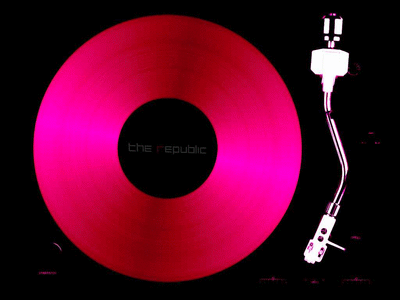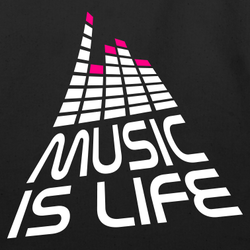 (L-R) Lopez & Carey
(L-R) Lopez & Carey Much of entertainment medium (and Twitter users) have been making assessments about the status and quality of Mariah Carey and Jennifer Lopez’s music careers, given their dismal album sales: Carey’s Me. I Am Mariah…The Elusive Chanteuse reportedly sold around 60,000 copies and J.Lo’s new A.K.A. is projected to reach half of that (as of June 15, 2014). The singers have been laughed at and called washed-up (mainly on social media, which is ever-punishing); at best, examining and theoretical pieces have been written to answer the questions of “What happened?” and “What is going on?”
Stop mocking these performers-- who have dedicated over a decade to entertaining you-- washed-up or “irrelevant” (I hate that word so much; it’s so overused, ill-applied and shoddily defined on social media), because they aren’t. Stop saying the albums are trash simply because they didn’t sell well; how many times have we seen great talent or music go unrecognized? In my opinion, Chanteuse and A.K.A. are the best records either woman has released since 2008 and 2005 respectively (see the reviews here and here). The real answer and bigger picture is much more frightening: the music industry is going bankrupt. Yes, bankrupt. Sound dramatic? I wish I was overstating. No one, I repeat, no one is doing substantial numbers, regardless of headliner status or promotion amount. Anticipated 2013 releases from pop power-players Katy Perry, Lady Gaga and Britney Spears all failed to garner certification from the Recording Industry Association of America (RIAA). Even hyped-up newbies with fierce radio-play like Ariana Grande aren’t seeing fat figures. Just to show you how bleak (as Mariah might say) things are, an artist can make the top 5 of the Billboard 200 Albums chart without even going gold (Chanteuse debuted at No.3). Pre-millennium (and pre-piracy), artists were selling 10 million copies left and right; now it’s a feat if you can do 1 million (maybe this is why Billboard ridiculously starting counting YouTube clicks and Spotify streams towards chart position). Acts are having to get creative (and perhaps desperate) to sell records. Lady Gaga’s Born This Way was $0.99 on Amazon for 2 days when it dropped in 2011. Jay-Z practically gave away 2013’s Magna Carta: Holy Grail; it was free for Samsung users and his 2011 Kanye West collaboration LP, Watch the Throne, was exclusively sold through Best Buy stores after an iTunes release to try to prevent a leak. Beyonce` had to issue her latest effort (complete with music videos) with no prior notice or singles for rapid purchases, only to match the sales of her previous 4 album (platinum).
I know what some of you are thinking. A ton of you are probably skimming through this next paragraph because you can’t wait to comment and say “Well, Adele’s 21 went diamond and long after its release.” Shut up, because you know just as well as I do that 21 was a complete anomaly. It did prove 1 thing, however: that “real” music--not mindless and heartless (but catchy) jabber sung by a pageant queen stunner or prom king stud muffin--sells. There are several reasons why people rather pirate than actually purchase an album, but 1 of them is quality- something the industry can actually do something about. They’ll never be able to take the joy out of getting something for free, but they can procure music we really want to buy. It’s funny how when Britney Spears started, even-better recreations of her popped up everywhere (ex. Christina Aguilera and Jessica Simpson), but Adele breaks bank and…crickets (although there were test trials like Amy Winehouse and Duffy before her). For record label executives to be the smartest people in the room, they’re doing a couple of dumb things. Well, several, but this is a “Rock&Rant,” so I’m only going to focus on a few. They need to stop signing acts purposely for the cause of having a few hot singles and get people with multi-dimensional talent, because they’ll make more money for a longer period. I assume a “flash in the pan” artist would be more expensive because the label has to pay so many other people to make the artist “hot,” whereas a singer-songwriter can do the bulk with less assistance. Once they get such a multi-talented act, let the artist be themselves; don’t sign Jewel and ask her to be Kesha. The worst trend and practice I’ve observed in recent years is focusing on the development of quick-buck fluffy singles instead of a comprehensive album. I’ve heard too many records where the singles were the strongest tracks and it seemed no effort was put into the rest. If you hear that type of album enough times, you’re not going to feel motivated to spend money or refer a friend. 90-95% of a record needs to be quality material. “Rolling in the Deep” was catchy and had some thought (how about that?!) and “Someone Like You” pierced the hearts of America and had us all in our feelings. People said to themselves “well, dang, what does the rest sound like?” and got their money’s worth because 21 was phenomenal. In future result, Adele’s next album will more than likely fly off the shelves because she’s now a brand people feel confident in and take seriously.
Now, that I’ve suggested what the industry can do, onto you: the consumer. At the risk of sounding preachy and cliché, please start buying music again. I know people hardly go on MySpace anymore, but you’d be surprised how many artists stream their albums in full on the site when they drop. Preview a record if you’re unsure about purchasing it. If you’ve already downloaded an album illegally and you like at least half of it, buy it. Push and plug the ones you like to your friends. If you’ve bought something you ended up hating, sell it on Half.com or EBay. Truly support the artists you’ve been tweet-gushing about. Otherwise, there won’t be much of anyone to gush about.


 RSS Feed
RSS Feed